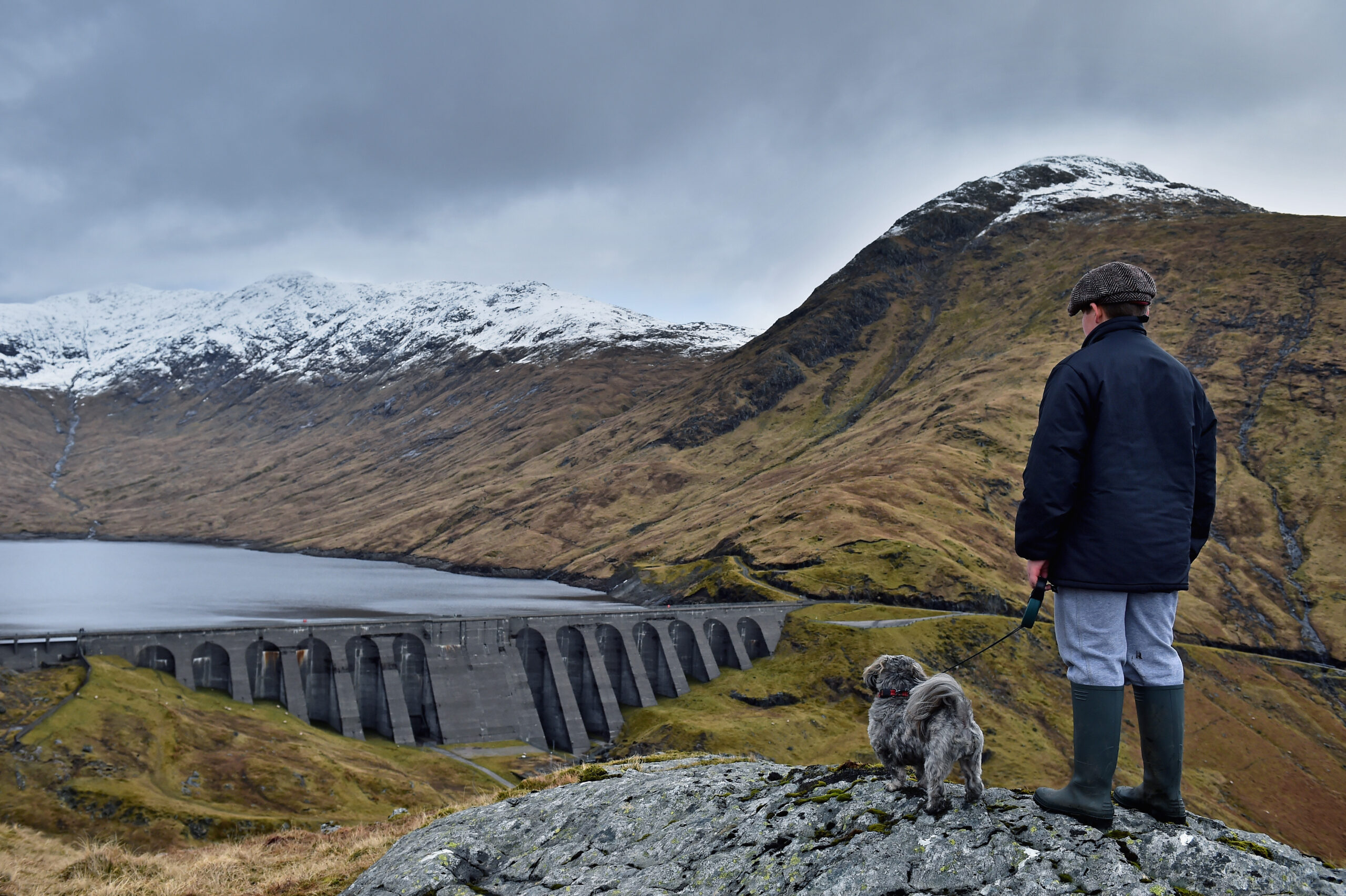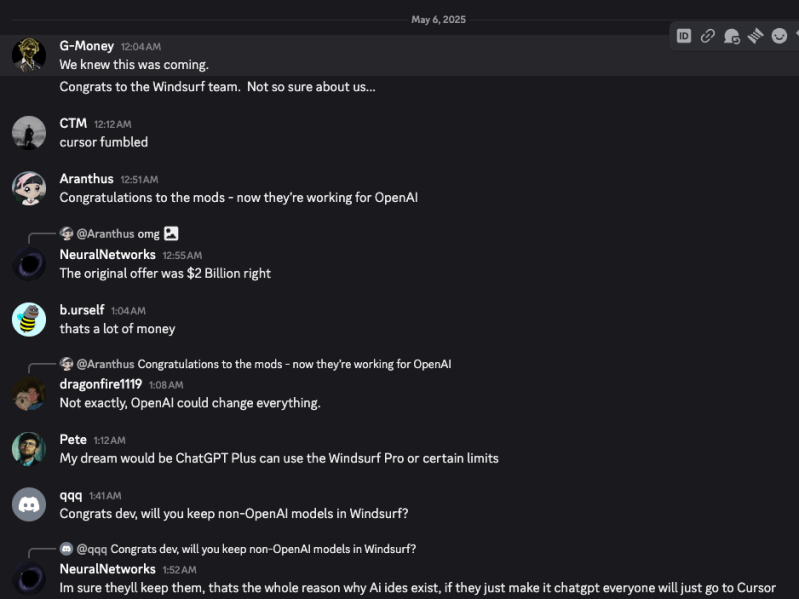Reform leader Nigel Farage has branded the debate around net zero as the “next Brexit” after his party stormed to unprecedented success in English local elections last week.
Farage’s party seized control of ten local authorities, alongside defeating Labour in the Runcorn and Helsby Westminster by-election.
Reform candidates also won two newly created mayoral positions in Greater Lincolnshire and Hull and East Yorkshire, where there are billions expected to be invested in clean energy schemes.
Former Tory MP Dame Andrea Jenkyns becomes Greater Lincolnshire’s first mayor, while former boxer and Olympic gold medallist Luke Campbell won in Hull and East Yorkshire.
The Greater Lincolnshire Combined County Authority (GLCCA) is host to the £2 billion Humber Zero project led by VPI and Phillips 66.
North Sea operator Harbour Energy leading the £7bn Viking carbon capture and storage scheme (CCS) in the region.
In addition to CCS and hydrogen investments, the offshore wind sector is also having a transformative effect in places like Hull and Grimsby.
Reform takes aim at net zero ‘lunacy’
The victory for Reform in the northern regions, which comes amidst a growing political backlash against net zero policies, could pose significant challenges for the energy sector.
In the wake of its electoral wins, Reform deputy leader Richard Tice said the party will use its newfound council powers to use “every lever” to block renewable energy projects including solar farms and electricity pylons.
“Whether it’s planning blockages, whether it’s judicial reviews, whether it’s lawsuits, whether it’s health and safety notices, we will use every available legal measure to an extreme way in order to frustrate these people,” Tice said.
Similarly, Farage told reporters that any council staff in Reform-controlled authorities who work in roles related to climate change should be looking for “alternative employment”.
The Reform leader has made no secret of his derision for net zero policies, labelling energy transition efforts “lunacy” and using climate scepticism to rally support.
“This could be the next Brexit, where parliament is so hopelessly out of touch with the country,” Farage said of net zero in an interview with LBC in April.
Reform mayors sceptical of net zero
Incoming Greater Lincolnshire mayor Jenkyns, who sits on the board of campaign group Net Zero Watch, has also been a vocal opponent of Labour’s net zero policies.
She has urged the UK government to “recommit to fossil fuels”, including coal-fired power, and in 2023 said “carbon dioxide is not pollution”.
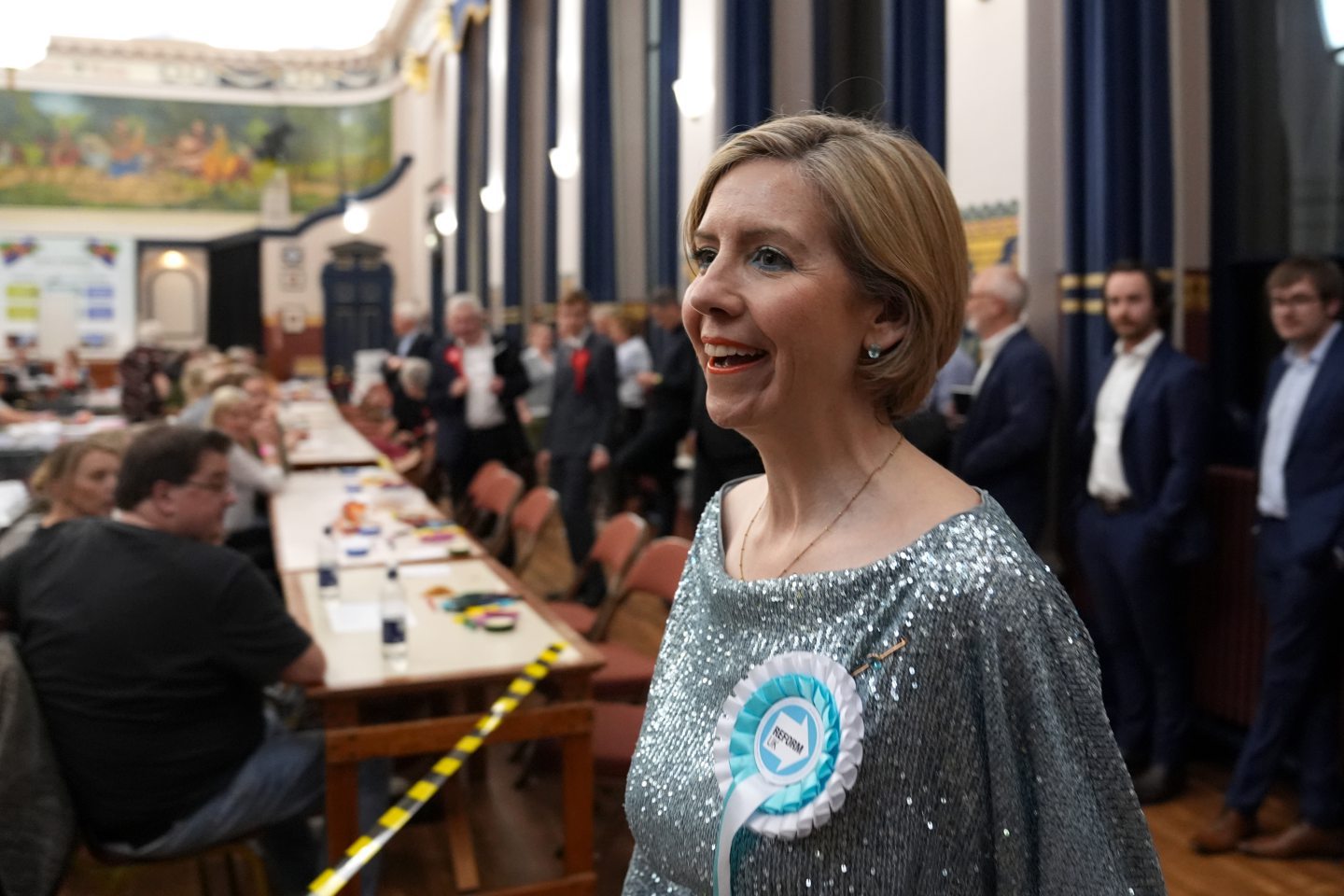 © Joe Giddens/PA Wire
© Joe Giddens/PA WireMeanwhile, Campbell told a candidates debate prior to the election that while he is “all for” net zero if it creates jobs, he does not believe the target is achievable.
Farage’s vehement opposition to net zero comes despite the economic rejuvenation underway in many of the local authorities Reform has just won.
In the Humber, the offshore wind sector is set to employ nearly 15,000 people by 2030 with investments in Grimsby and Hull transforming towns once dependent on fishing.
Meanwhile, investment in carbon capture and storage (CCS) is set to safeguard existing industries and provide up to 20,000 jobs.
It’s a similar story in Lincolnshire, with the low carbon and energy economy already worth £1.2 billion per year to the region and employing over 12,000 people.
Majority of Reform voters back climate action
Reform’s net zero opposition also stands in contrast to the views of its own voters, according to a poll from the Energy and Climate Intelligence Unit (ECIU).
According to the poll, around 54% of Reform voters in the 1 May elections support “policies to stop climate change and put in place targets accordingly to keep the UK on track”.
And despite a similar pivot on net zero from Conservative leader Kemi Badenoch in recent months, the poll found 66% of Tory voters support “net zero by 2050”.
Across all parties, renewable energy and clean technology was also seen as the best economic growth opportunity by voters (32%), ahead of manufacturing (31%) and oil and gas (17%).
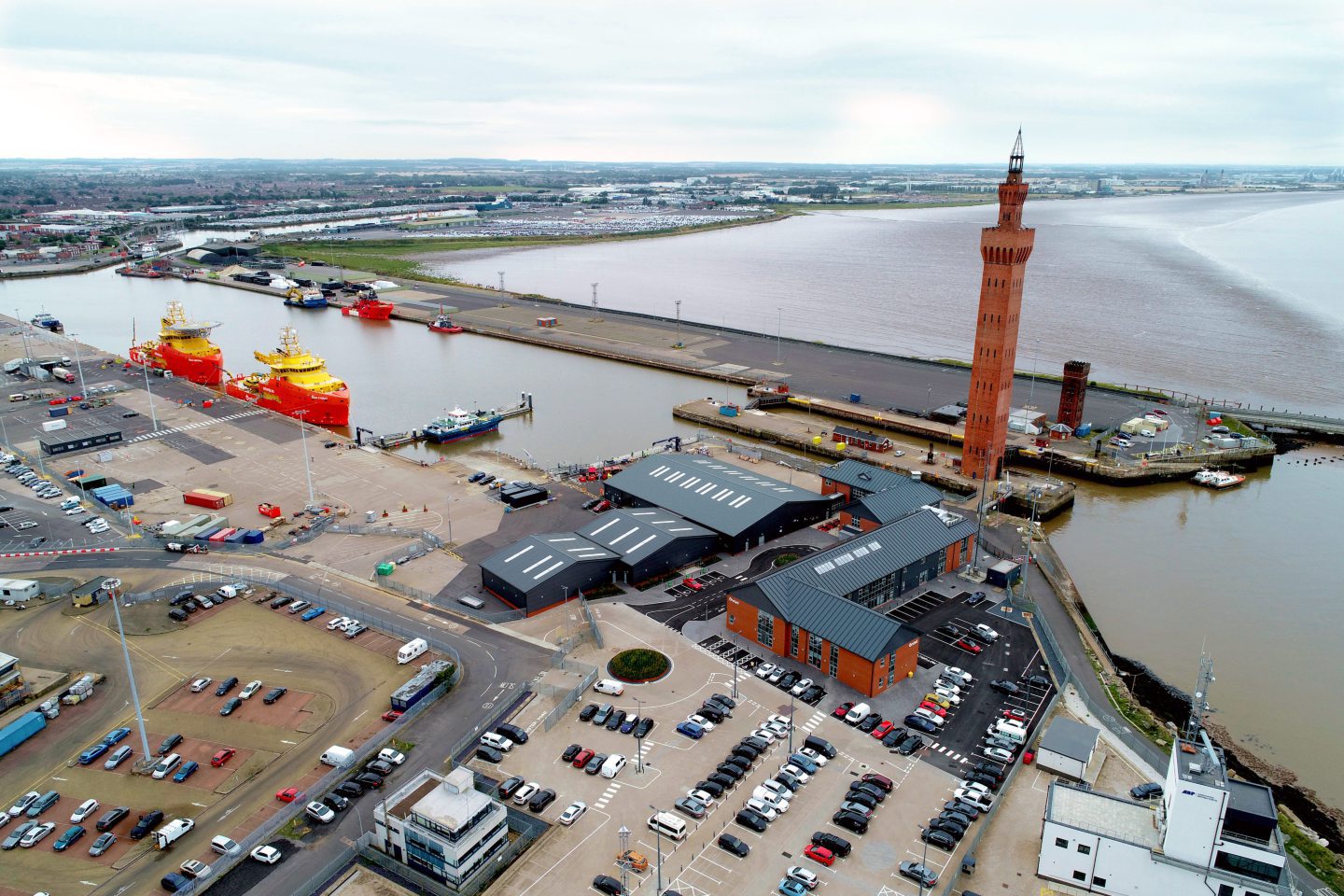 © Supplied by Orsted
© Supplied by OrstedMeanwhile, 60% said green and low-carbon industries are the best way for the UK to regrow its industrial base compared to just 40% saying the transition threatens it.
Alasdair Johnston from the ECIU said voters “clearly see clean energy as a major growth industry”.
“Efforts to mislead over what net zero actually means distract from the reality that the clear majority of Reform UK voters want climate change tackled even if it’s not their top issue and may well have tuned out of that bit of the party’s pitch,”
“Missing from the current debate is the fact that net zero is a scientific concept, and put simply if we don’t reach that target, if we don’t stop adding emissions to the atmosphere, we don’t stop climate change.”
Reform support a warning for energy sector
While the next UK general election remains at least four years away, Reform has already signalled it intends to chip away at the country’s former consensus on net zero.
This has raised concerns within the energy sector on the potential impacts in areas like planning and council-led grant programmes within Reform-controlled regions.
Offshore wind sector consultant John MacAskill said the “warning signs are flashing” following Reform’s election wins.
“The recent surge by Reform UK should be a moment of reflection…not just for the main parties, but for all of us involved in climate, energy and industrial policy,” he wrote on social media.
“What we risk seeing is net zero turned into a new fault line of division, weaponised not on technical grounds, but cultural and economic ones.”
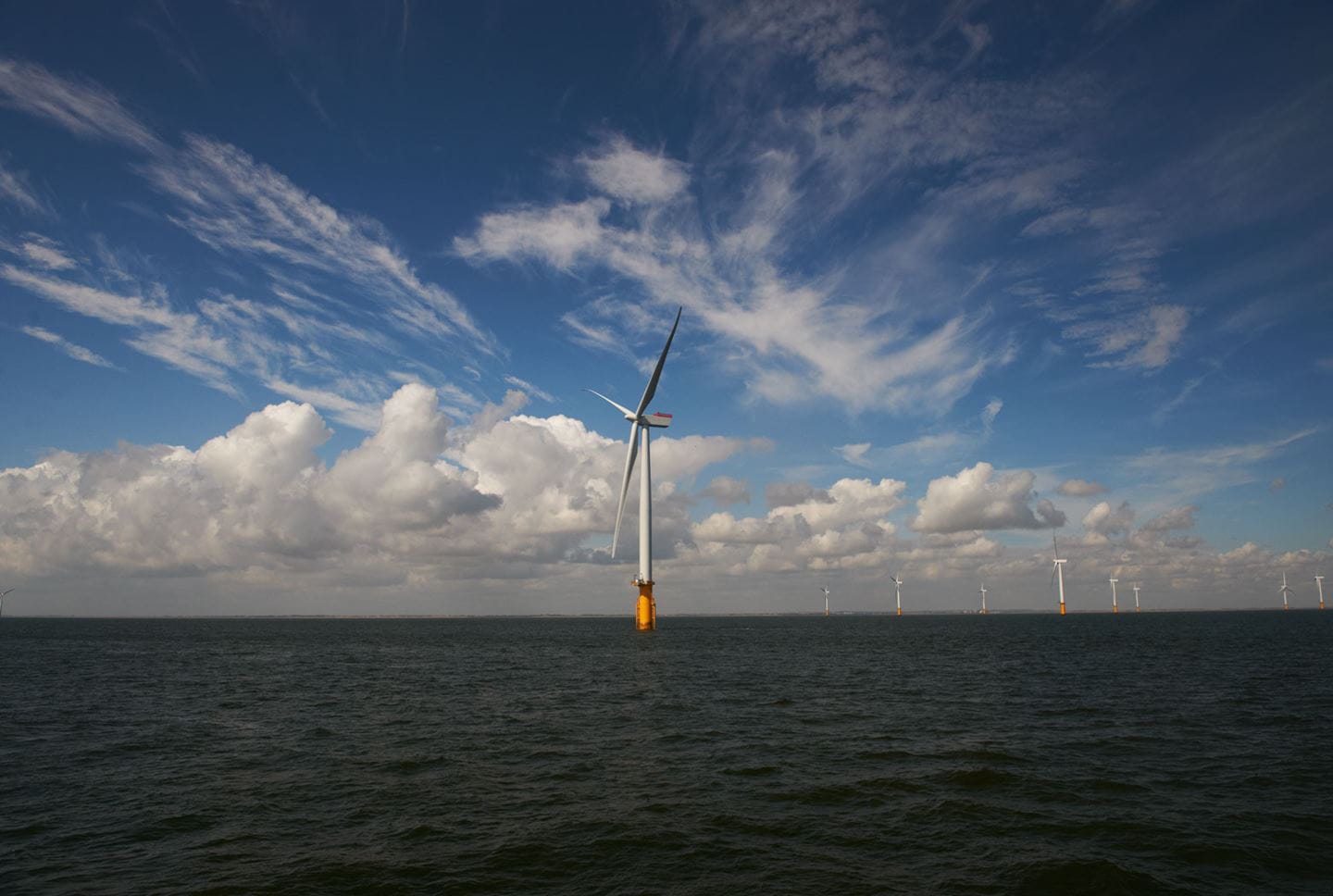 © Supplied by Orsted
© Supplied by OrstedMacAskill said energy policy must move beyond “carbon metrics and timelines” and focus on a revitalising “towns, ports and trades that have been left behind”.
“It needs to centre economic participation, place-based investment, and a re-industrialisation agenda that works in Blyth and Barrow just as much as it does in Brighton and Battersea,” he added.
In Hull and East Yorkshire, local business groups in the energy sector are also wary of Reform’s success.
Ahead of the election, Northern Powerhouse Partnership chief executive Henri Murison said Reform’s mayoral candidate posed a “clear risk” to the region.
“He has set himself against net zero which goes against the interests of business in the region,” Murison told The i Paper.
Writing on social media, Murison warned that Reform’s pledge to scrap net zero and roll back investment in clean energy may “resonate in Westminster’s culture wars”, but that repeating that message in the Humber “is to ignore economic reality”.
UK public are ‘understandably growing sceptical’
Meanwhile, Berwick Bank project director Alex Meredith drew parallels between the surge in support for Reform and planning delays in the offshore wind sector.
The 4 GW SSE Renewables project has already waited two years for a planning decision from the Scottish government since securing a lease as part of the ScotWind round.
Meredith said if the Scottish government had issued a quick decision on Berwick Bank then “the jobs and opportunities would speak for themselves”.
“In that scenario voters would have seen opportunities in their communities linked to net zero moving forward at pace by now,” Meredith said.
“Very little of that has happened and it’s way too slow.
“The public are understandably growing increasingly sceptical – the only PR campaign that will do is actual delivery.”






